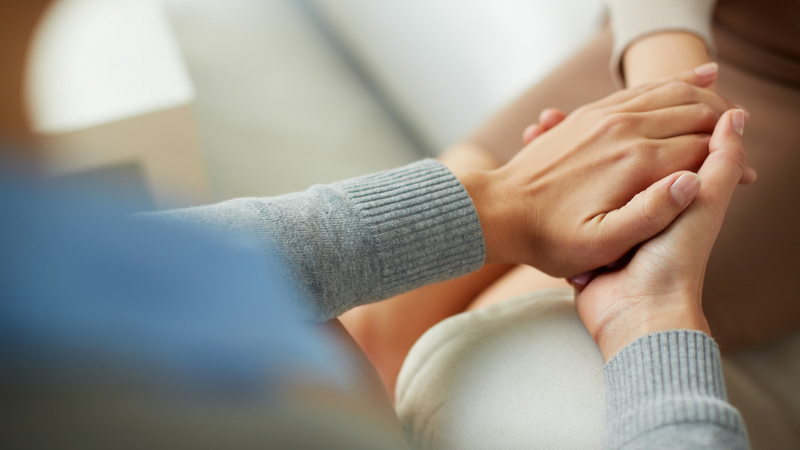Grieving the Little Deaths in Our Lives
The year was 2011, and I was finally in a good job and on a solid career path. My boss was amazing, and my team was tight-knit. With less stress on my shoulders, my mood swings lessened and were further apart. Life was good.
Then, the headlines hit the newspapers: “Hedge fund starts proxy fight at Fortune 1000 company.” Within two months, the fight was in full force: the CEO resigned, the leader of my business unit was fired, and my group was sold to a new company. Everything I loved about my work life was changing, and I had no control over it.
I didn’t know it at the time, but this was one of the many “little deaths” we live in our lives.
What Are Little Deaths?
Commonly, when we think of grief, we think about death: the death of a spouse, a family member, or a close friend. These are big, profound losses that alter the shape of our reality and cause us to alter our sense of identity in some way.
What we miss in this simplistic definition are all the little deaths we experience in our lives. Every time we hit a change in our life, we experience a little death. In my story, it was the death of my team that upset me: we would have layoffs, people would quit – it would all happen quickly, and outside my control.
We live a lot of little deaths in our lives. When we marry, we experience the death of our single-life. When we become parents, our childless existences depart from us. Relationships die, lives change.
As a society, we don’t acknowledge these little deaths enough. We may recognize that we are going through a change, but we don’t grant it the dignity we associate with death. We don’t stop and say, “this is a big change in my life, and it’s worth grieving.” Instead, we often try to muscle our way through and get on with the next step.
Positive Changes Are Little Deaths, Too
Our default thinking when it comes to death or grief is that it is inherently negative. This is simply untrue. Positive changes bring with them grief, as well.
When we marry, we say goodbye to the unmarried person we were – along with parts of the lifestyle that we loved (such as going out at the last minute to hang with girlfriends). We no longer live unfettered lives; we now have to take a second person into consideration when it comes to big decisions, such as a career change or a move.
For women who change their names after marriage, this can be a profound impact. I was in my mid-30s when I got engaged, and I had two years to come to grasp with my new name. Even so, the reality of it had an impact on me.
Who was this new person, Teresa Colón? It took me the four days of our honeymoon to even start to integrate this new name into my identity, and another year or so before I easily named myself properly.
I grieved the loss of my maiden-named self, even as I embraced my new life.
We see the same when we become parents. Each child brings a profound change in our lives. We are no longer the same as we were before we became parents; our identity and our lifestyles change. It’s OK to grieve that loss; it doesn’t make us a bad parent.
Death of Our Pre-Diagnosis Life
Most especially, however, we see this with diagnoses, including cancer, mental illness, and addiction. With a diagnosis, our reality gets turned upside-down; we suddenly have to contend with a new set of facts.
I used to go out to bars and drink with girlfriends; now, I avoid alcohol. Pre-diagnosis, I didn’t worry about tracking my medications and making sure I take them daily; now, I live with a chalk-marker calendar on my bathroom mirror to make sure I don’t accidentally skip a day.
My diagnosis impacts my relationships. It’s an explanation for some of my “quirks” (as my husband gently calls them), and it’s also a challenge to me to learn to relate in new, healthier ways.
It’s not just an explanation; it’s an obligation. The diabetic has to take sugar reads throughout the day and adjust their insulin levels to comply; the addict has to find new hobbies (and often, new relationships altogether).
Depending on the degree of change, these changes are disorienting and often overwhelming, too. I think that’s why so many people struggle with staying on a recovery plan: we don’t fully grieve our pre-diagnosis life, leaving a little bit of us stuck in shock or denial.
Rather than adjust to our new reality, we instead deny it or insist we don’t need to implement the entire plan.
It is healthier to say: “I know I have depression; I know it touches on all pieces of my life. Right now, I’m just going to focus on taking my medication; as I feel better, I’ll do more of my recovery plan” than it is to say, “I know three doctors have told me I have depression, but I’m not going to <take medication/work on my sleep/insert recovery plan piece here>.”
Taking the time to grieve the change in our lives allows us to move forward in a stronger, healthier way.
I can acknowledge that I miss going to bars, and also that I’m happier and more stable since I quit drinking. I can acknowledge that I miss some of the impulsive choices I used to make and the stories I got from them, and also that I am thriving under my care plan.
In some ways, it was easier to live in ignorance of my diagnosis; I wasn’t tracking medications, my relationships had a different texture to them, I didn’t worry about getting to bed before 10 pm every night.
Having done the grieving, though, I can embrace my bipolar-ness and focus on living a healthier life, a better life.
Final Thoughts
Our lives are comprised of little deaths, and taking the time to recognize, acknowledge, and grieve them helps us adapt to changes more quickly and with less overall pain. We acknowledge the change on a deeper level when we take time to grieve and process the emotions that come with it.
In particular, grieving our pre-diagnosis life is important. When we skip the grieving step, we don’t take the time to integrate this new reality into our identity and our life, jeopardizing our recovery journey.
The better we are at grieving the little deaths of our lives, the better we handle the change our new reality brings, and the deeper the peace that comes with it.
What are some of the little deaths you’ve experienced in your life? How have they impacted you? I’d love to hear your stories in the comments below.
Looking for daily inspiration and community? Join our warm and supportive Facebook group!









